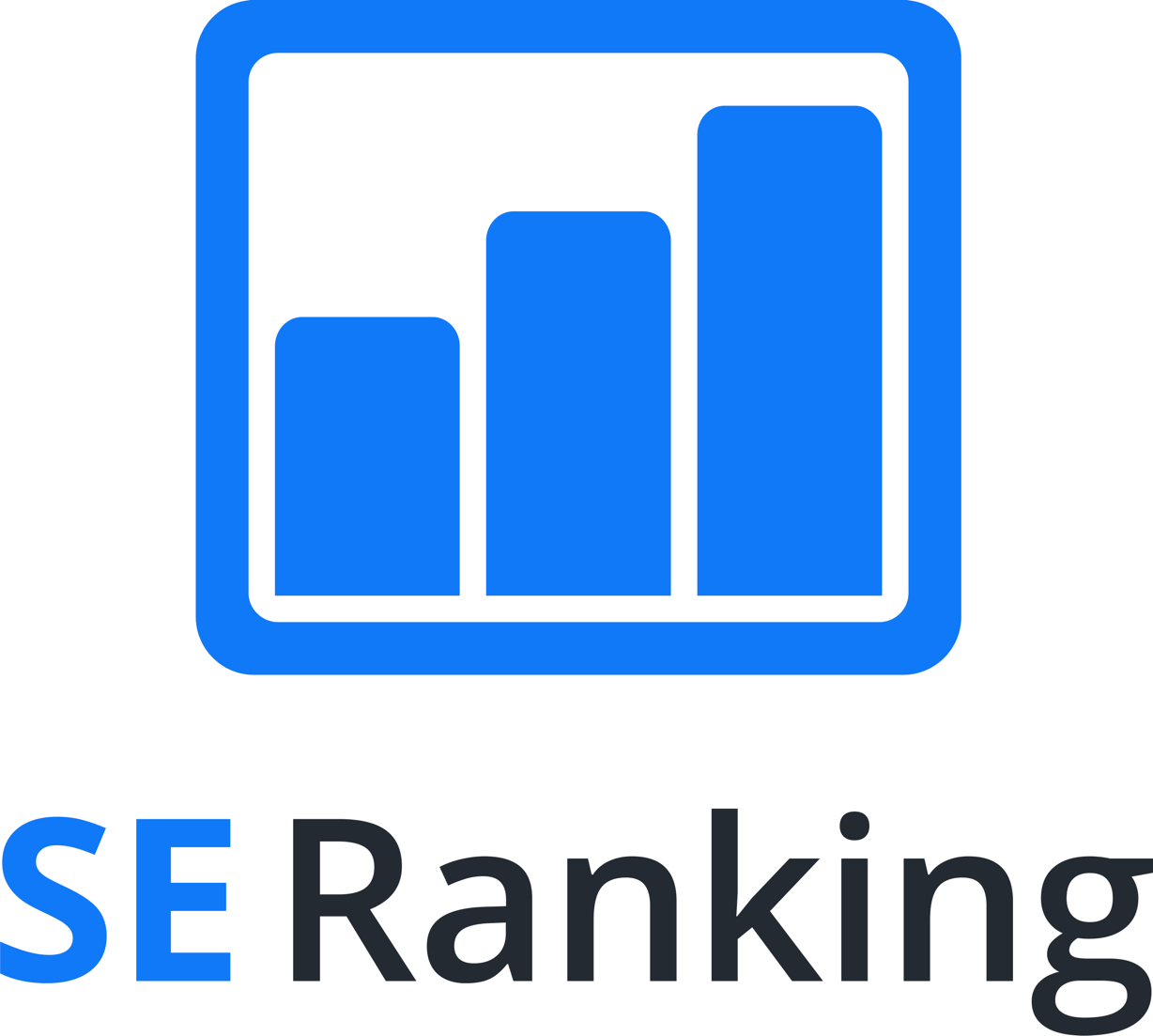Yes, most SEO audit tools work on numerous devices and platforms, including desktop, mobile, and tablet. This enables users to conduct audits on several devices and access their data from numerous platforms. However, be sure that the SEO audit tool you're using is compatible with the devices and platforms you intend to utilize for your audits.
List of 20 Best SEO Audit Tools
Botify is a solution designed to enhance your websites organic search performance. With advanced indexing capabilities and data-driven insights, this innovative platform takes your SEO strategy to the next level, boosting your brands visibility on se...Read More Botify
Labrika is a SEO software that leverages artificial intelligence to continually evaluate over 200 vital ranking factors in real-time. It provides practical recommendations to increase website traffic and conversions, making it a complete solution for...Read More Labrika
HOTH Stars is a review management solution designed for small businesses and marketing teams. Stay on top of your online reputation with our powerful tools that help address negative reviews, monitor your brands image, and effortlessly share positive...Read More HOTH Stars
TubeRanker - the must-have YouTube SEO solution for improving your channels performance and increasing views. Our powerful Toolset allows you to easily conduct a comprehensive audit of your channel, uncover engaging content ideas, and track ranking i...Read More TubeRanker
NinjaSEO is a SEO tool to enhance your websites success. With thorough audits and advanced on-page grading, NinjaSEO is your key to increasing visibility and driving traffic. For only $14.99 per user, get access to 30+ apps that will take your online...Read More NinjaSEO
Screaming Frog SEO Spider is website crawling tool designed to improve your websites search engine optimization (SEO). With its advanced analysis feature, it detects broken links and duplicate content, while also allowing for optimization of meta des...Read More Screaming Frog
Nightwatch is a SEO software designed to enhance your online visibility and elevate your search performance. With its user-friendly dashboard, precise ranking analysis, and comprehensive analytics, Nightwatch empowers you to identify areas for improv...Read More Nightwatch
WooRank is SEO software that provides businesses with a wide range of tools for website analysis, practical suggestions, and compliance checks. With WooRank, businesses can improve their online performance, increase accessibility, and boost sales usi...Read More WooRank
ContentKing is a SEO auditing and monitoring software that operates in the cloud, providing real-time insights and continuous tracking. Through its feature of recording all content changes on websites, it helps businesses improve their online presenc...Read More ContentKing
Sitebulb - a website auditing tool designed for SEO specialists. Available in both Desktop and Cloud versions, Sitebulb simplifies the auditing process with intuitive workflows, in-depth analysis, and prioritized recommendations. With this robust sof...Read More Sitebulb
Sitechecker is a website optimization tool that raises the bar for online success. Its user-friendly interface and comprehensive features empower users to enhance their online presence, resulting in significant improvements in search engine rankings...Read More Sitechecker
SEO PowerSuite is a tool for boosting your websites SEO performance. With its cutting-edge features, this software will propel your site to the top of Google search results, leaving your competition in the dust. Watch your website traffic and profits...Read More SEO PowerSuite
SpyFu is the must-have marketing software for boosting your SEO and PPC success. Get valuable intel on backlink strategies, keyword performance, and rivals tactics. Our unlimited data and customizable reports give you the power to make informed decis...Read More SpyFu
SEOmator is SEO and SEM platform that leverages AI technology to provide marketers with 23 essential tools, comprehensive audit reports, and competitor analysis. With this all-in-one platform, you can gain valuable insights to improve your website, b...Read More SEOmator
Yoast - a premier SEO tool that takes your content to the next level by providing efficient optimization for any platform. With its real-time content evaluation, Yoast helps you identify and resolve plagiarism and grammar errors, elevating the qualit...Read More Yoast
Local Ranking solution for small businesses and digital agencies looking to enhance their local SEO efforts. Our all-in-one toolset empowers businesses of any size to effectively manage their Google My Business listings and improve their online prese...Read More Local Ranking
SEOptimer is an efficient SEO analysis tool that provides a thorough website audit within 30 seconds. With a detailed check of over 100 data points, it offers valuable recommendations for enhancing SEO rankings and increasing online presence for smal...Read More SEOptimer
Woopra is a customer journey analytics tool for businesses. Easily track and analyze customer behavior, trends, retention strategies, and segmentations. Optimize your marketing and sales efforts with advanced features that provide comprehensive insig...Read More Woopra
SEOReseller.com is the perfect all-in-one solution for managing your online reputation. Our cutting-edge dashboard provides a comprehensive set of tools at a competitive price, allowing you to easily monitor and control your brands image. With a user...Read More SEOReseller.com
SE Ranking is a SEO tool designed to track your keyword rankings on various search engines, including Google on desktop and mobile devices. Our advanced features provide valuable insights to help improve your SEO strategy. Experience it for yourself...Read More SE Ranking
Learn More About SEO Audit Tools
- What Is SEO Audit Tools?
- What Are The Recent Trends In SEO Audit Tools?
- Benefits Of Using SEO Audit Tools
- Important Factors To Consider While Purchasing SEO Audit Tools?
- What Are The Key Features To Look For In SEO Audit Tools?
- Why Do Businesses Need SEO Audit Tools?
- How Much Time Is Required To Implement SEO Audit Tools?
- What Is The Level Of Customization Available In SEO Audit Tools?
- Which Industries Can Benefit The Most From SEO Audit Tools?
- Conclusion
What Is SEO Audit Tools?
SEO Audit Tools are digital tools that help organizations and individuals evaluate the efficacy and performance of their website's search engine optimization (SEO) techniques. These tools use a number of metrics and data analysis to discover areas for development and provide actionable insights that can help a website's search engine rankings.
These tools are essential for businesses and website owners that want to boost their online exposure, drive organic traffic, and, eventually, improve their bottom line. SEO audit tools can discover hidden faults that are impeding a website's search engine performance by doing an in-depth review of its technical setup, content, and backlinks.
SEO audit tools often comprise website crawling and indexing, keyword analysis, website speed and performance, backlink analysis, and competitor analysis. Businesses may use these capabilities to acquire useful insights into how their website performs in contrast to competitors, allowing them to make data-driven decisions that improve their online presence.
Furthermore, SEO audit tools frequently feature user-friendly interfaces and report production capabilities, making it easier for firms to understand and act on the results. Businesses who undertake SEO audits on a regular basis may keep track of their website's performance and improve it for higher search engine rankings, resulting in more website traffic and conversions.
What Are The Recent Trends In SEO Audit Tools?
SEO audit tools have changed significantly in recent years, adding new features and capabilities to match the evolving needs of digital marketers and enterprises.
We'll look at the latest trends in SEO audit tools to help you make an informed decision about which tool is ideal for your organization's needs.
1. Emphasis On Mobile Optimization: As mobile usage grows, search engines place a high value on mobile optimization. As a result, SEO audit tools are now focused on assessing and optimizing websites for mobile devices. This includes tools like mobile site speed monitoring, mobile keyword tracking, and mobile-friendly design tests.
2. Integration With AI And Machine Learning: As AI and machine learning technologies progress, SEO audit tools can now deliver more accurate and in-depth website audits. They can spot patterns and detect issues that might otherwise go unreported. Furthermore, AI-powered tools can make tailored recommendations for optimizing website performance based on individual data and user behavior.
3. Focus On Technical SEO: Technical SEO is becoming increasingly crucial in improving website performance. As a result, many SEO audit tools now provide comprehensive technical analysis, such as looking for broken links, duplicate content, redirect errors, and other technical issues that might impact a website's search engine rankings.
4. In-Depth Competitor Analysis: Keeping track of your competitors is critical in the ever-changing world of SEO. Many SEO audit tools now include competition analysis functions, allowing you to compare the performance of your website to that of your major competitors. This includes reviewing backlinks, keyword rankings, and content strategy.
5. Local SEO Tools: With the growing importance of local SEO, several SEO audit tools now include capabilities that help firms enhance their local search position. This includes researching and optimizing for local keywords, tracking local business listings, and creating local citation reports.
6. User Experience (UX) Optimization: When ranking websites, search engines are increasingly focusing on user experience. In response, several SEO audit tools now include UX optimization features including page loading speed, mobile responsiveness, and user engagement metrics.
7. Improved Reporting And Data Visualization: SEO audit tools now offer more detailed and visually attractive information to their consumers. This facilitates the understanding and presentation of data to important stakeholders within a company. Some solutions additionally have configurable reporting options, allowing you to select the metrics and data to include.
Benefits Of Using SEO Audit Tools
Search engine optimization (SEO) is essential for any online business that wants to improve its online presence and attract organic traffic. However, keeping track of all the aspects influencing a website's SEO success can be difficult. This is where SEO audit tools come in: they provide a full examination of a website's SEO health and recommendations for improving its performance.
Here are some of the main advantages of employing SEO audit tools:
1. Identify Technical Issues: Search engines like websites that are technically sound and user-friendly. SEO audit tools check your website for technical issues including broken links, page errors, and slow page load times. These flaws might reduce your website's performance and visibility on search engine result pages (SERPs). SEO audit tools contribute to the overall SEO performance of your website by finding and resolving these issues.
2. Monitor Keyword Performance: Keywords are important in SEO, and using the appropriate ones can help you rank better in search engine results. SEO audit tools examine your website's keyword usage and reveal which terms generate the most traffic. They also provide relevant keywords that can be added to your article to improve ranks. This allows you to make data-driven decisions while developing your SEO strategy.
3. Analyze Backlinks: Backlinks are vital in SEO since they help establish your website's reputation and authority. However, not all backlinks are useful, and having too many low-quality connections might negatively impact your website's SEO performance. SEO audit tools assist you assess your backlink profile and discover any poisonous or spammy links that may be harming your rankings.
4. Competitor Analysis: SEO audit tools can provide insight into your competitors' SEO practices. Analyzing their website's SEO performance will help you understand the keywords they're targeting, the backlinks they have, and their general SEO approach. This information can help you improve your own SEO efforts and remain ahead of the competition.
5. Save Time And Effort: Manually doing an SEO audit can be time-consuming and laborious. SEO audit tools automate the process, allowing you to swiftly assess your website's SEO health and pinpoint areas for improvement. This not only saves time, but also ensures that you do not overlook any crucial issues that may have an impact on your website's SEO performance.
Important Factors To Consider While Purchasing SEO Audit Tools?
When it comes to increasing your website's search engine exposure, SEO audit tools are invaluable for finding areas for development. However, with so many options available in the market, it might be difficult to select the best one for your business needs.
To help you make an informed decision, here are some key considerations to consider when choosing SEO audit tools:
1. Capabilities And Functionality: The first and most important consideration should be the tool's capabilities and functionality. It should be able to assess your website's SEO performance and generate detailed results and recommendations. Look for tools like keyword analysis, backlink audits, and competition analysis to have a thorough grasp of your website's performance.
2. Usability: Any SEO audit tool should have an easy-to-use UI and navigation. It should be simple and easy to use, especially for individuals who are not tech savvy. In addition, search for tools that include a user guide or tutorials to help you get started.
3. Compatibility: Confirm that the SEO audit tool is compatible with your website's platform and content management system (CMS). It should be able to crawl and analyze all pages on your website, including those that contain dynamic content such as JavaScript or AJAX.
4. Pricing: When investing in SEO audit tools, think about your budget and the value they will add to your business. Most tools have several pricing options, so select the one that best suits your requirements and budget. Some tools also include a free trial period, allowing you to test and assess the tool before committing to a long-term purchase.
5. Support And updates: As technology and search engine algorithms evolve, it is critical to select a tool that provides regular updates. Additionally, look for customer service options such as live chat, email, or phone to assist you in case of any issues or queries.
6. Reputation And Reviews: Before purchasing a tool, examine its reputation and read customer reviews. Look for reviews across several platforms, including the tool's website, social media, and third-party review sites. This can help you gain a better grasp of the tool's reliability and performance.
Consider these aspects while selecting the best SEO audit tool for your company's needs. Keep in mind that no single tool can give all of the capabilities, so select those that are relevant to your SEO goals. Finally, investing in the correct technology will allow you to optimize your website, enhance your search engine rating, and increase organic visitors.
What Are The Key Features To Look For In SEO Audit Tools?
When it comes to improving your website's search engine ranking and overall performance, using an effective SEO audit tool is essential. With so many alternatives on the market, it might be difficult to choose the one that best meets your needs.
To help you make an informed decision, these are the main elements to look for in SEO audit tools:
1. Comprehensive Website Review: Any SEO audit tool's main feature should be the ability to do a full review of your website. It should offer insights into keywords, backlinks, website loading speed, and mobile friendliness. This will provide you with a comprehensive assessment of your website's SEO health and guide you through any necessary modifications.
2. Customizable Reports: Look for a platform that provides customizable reports to produce detailed and understandable information. This allows you to personalize the information to your unique requirements and goals, making it easier to pinpoint areas that want development.
3. Keyword Research: A decent SEO audit tool should have a keyword research capability to assist you in determining the most relevant keywords to target for your website. This will help you optimize your content and increase your search engine ranking.
4. Competitor Analysis: An excellent SEO audit tool should also have a competitor analysis feature, which allows you to compare your website's performance to that of your competitors. This will assist you learn their techniques and stay ahead in the rankings.
5. User-Friendly Interface: Ease of use is critical for SEO audit tools since it helps you to simply access and understand the data. Look for a tool with a user-friendly interface that delivers information in a visually appealing and well-organized fashion.
6. Technical SEO Audit: Look for a tool with a technical SEO audit feature that evaluates your website's technical characteristics, such as site structure, meta tags, and URL structure. This will assist you in identifying and resolving any technical issues that may be hurting your website's performance.
7. Integration With Other Tools: A decent SEO audit tool should be compatible with other tools like Google Analytics and Google Search Console. This will provide you a more complete picture of your website's performance and allow you to follow your progress over time.
Why Do Businesses Need SEO Audit Tools?
SEO audit tools are vital for organizations because they provide valuable information about the performance of their website. In today's digital world, a strong online presence is critical to success. However, with search engines' continuously changing algorithms and upgrades, it can be difficult for businesses to stay current and guarantee that their website is optimized for optimum visibility. This is where SEO audit tools come in.
These tools examine a website's on-page optimization, backlinks, content, and technical concerns to determine its overall SEO health. They assist with identifying any potential issues that may be affecting the website's performance and making ideas for improvement. Businesses can use SEO audit tools to acquire a better understanding of their website's strengths and flaws.
This information enables them to make informed decisions about which regions of their website require attention and prioritize their SEO efforts accordingly. This not only boosts the website's ranking in search engines, but it also improves the entire user experience. Furthermore, SEO audit tools offer competitive analysis, which allows firms to compare their performance to that of their competitors. This tool assists in identifying areas where competitors excel and provides ideas into how to improve and stay ahead.
How Much Time Is Required To Implement SEO Audit Tools?
The time required to deploy SEO audit tools varies based on numerous aspects, including the size of the website, the complexity of the SEO audit, and the tools used. In general, the process can take anything between a few minutes and several months. A basic assessment of tiny websites with low SEO requirements can be accomplished in a matter of hours. This includes configuring and activating the chosen tools, conducting the audit, and assessing the results.
However, for larger websites with more complicated SEO requirements, the procedure may take longer. This could include completing thorough keyword research, assessing backlinks, and finding technological concerns. In such instances, it is advisable to set aside at least a few weeks to perform the audit fully. It is also worth noting that the implementation time can vary based on the expertise of the individual managing the audit.
If you're new to SEO and audit tools, it may take some time to comprehend the functions and explore the data. In contrast, if you are an experienced SEO specialist or have someone on your team who is, the implementation time will be greatly reduced. In addition, the amount of audit tools utilized can have an impact on the implementation time.
Each tool provides unique features and functionalities, and some may take more effort to set up and personalize. It is critical to carefully choose the correct tools depending on your SEO goals to avoid additional delays in the implementation process.
What Is The Level Of Customization Available In SEO Audit Tools?
The level of customization possible in SEO audit tools varies substantially depending on which tool is utilized. Some tools may provide a one-size-fits-all solution, but others may allow for more advanced and customized solutions. The ability to prioritize and assess which components of your website is an important factor to consider when deciding on the extent of customisation. This may contain individual pages, keywords, or technological features.
Furthermore, certain SEO audit solutions may provide the option to create custom reports and dashboards, allowing you to focus on the metrics and data that are most essential to your organization. This is especially handy for larger, more sophisticated websites. Another feature to look for is the ability to specify specific parameters for your audit. This can include defining which search engines to monitor, setting specific goals or targets, and even altering the crawl depth.
It's also critical to examine the level of flexibility available for reporting and sharing your audit findings. Some platforms may provide pre-made templates with limited modification choices, but others may enable more personalized branding and interaction with your existing systems. Finally, the level of customisation in SEO audit tools has a significant impact on their utility and efficacy. When looking for a tool, keep your individual needs and goals in mind to ensure that you choose one with the appropriate level of customization for your organization.
Which Industries Can Benefit The Most From SEO Audit Tools?
SEO audit tools can provide significant information and recommendations to firms across a wide range of industries. These tools may examine and evaluate a website's search engine optimization (SEO) performance, pinpoint areas for improvement, and assist organizations in developing a more effective SEO strategy.
Let's take a closer look at which industries will gain the most from SEO audit tools.
1. E-Commerce: In the highly competitive world of e-commerce, having a good online presence is critical to success. E-commerce enterprises can use SEO audit tools to evaluate their website's SEO and make necessary modifications to boost their ranks on search engine result pages (SERPs). These tools can also aid with keyword research, content optimization, and backlink analysis, all of which are critical for growing organic traffic and conversion rates.
2. Local Enterprises: For businesses that rely on local clients, local SEO is critical. SEO audit tools can assist local businesses in optimising their website for local searches by finding areas for improvement such as local keyword targeting, local citation building, and ensuring local listings are accurate and consistent. This can help businesses rank higher in local search results, attracting more customers in their target market.
3. Professional Services: Lawyers, doctors, and accountants can all benefit from SEO auditing tools. These tools can evaluate their website's SEO, identify potential flaws, and make recommendations to improve their online visibility. SEO auditing tools can also assist these experts with local SEO and increasing visibility in their target market.
4. Travel And Hospitality: The travel and hotel industries rely largely on internet bookings and reservations. Businesses in this category can use SEO audit tools to optimize their websites and increase their search engine rankings, attracting more customers. These tools can also assist businesses in targeting certain keywords relevant to their industry, locations, and services, making it easier for potential clients to locate them online.
5. Online Publishing And Media: In the online publication and media industry, a solid SEO strategy is essential for reaching a larger audience and growing website traffic. SEO audit tools can help discover any flaws that may be affecting their website's SEO and make recommendations for improvement. These tools can also aid with keyword research and content optimization to improve search engine rankings.
Conclusion
Finally, investing in a dependable and successful SEO audit tool is critical for every website owner or digital marketer. With the correct technology, you can acquire useful insights and boost your website's search engine results, resulting in more website traffic and, eventually, new consumers or clients. Based on our research, we found several crucial elements to consider when selecting an SEO audit tool.
First, ensure that the program includes complete SEO analysis and tracking features. This includes reporting on website performance, backlink analysis, keyword tracking, and competitor research. It should also create clear reports with actionable suggestions for development. Furthermore, the tool should have a user-friendly interface and be appropriate for a wide range of skill levels.
It should also provide dependable customer support if you find any problems while utilizing it. Consider the tool's cost and budget. While some tools provide free trials, others may require a monthly or annual subscription charge. Determine which features are vital to your needs and select the tool that provides the best value for your money. Check the tool's reputation and customer reviews to confirm its dependability and usefulness.
Look for solutions that have a demonstrated track record of assisting businesses in improving their SEO and, eventually, meeting their marketing objectives. Finally, examine whether the tool is compatible with other digital marketing platforms you may be using. This saves time and effort by allowing you to view all of your data and reports in one location.
With these crucial elements in mind, you can confidently select the best SEO audit tool for your company and implement the necessary changes to boost your website's search engine ranking and overall online presence. We hope this buyer's guide has helped you make an informed decision about your SEO needs.
SEO Audit Tools FAQ's
Can SEO Audit Tools Be Accessed Across Multiple Devices And Platforms?
Is SEO Audit Tools Future-Proof And Adaptable To Emerging Technologies Like AI, Blockchain Or IoT?
SEO audit tools are continually changing to keep up with future technologies like artificial intelligence, blockchain, and the Internet of Things. They are intended to adapt and improve as new technologies become more common in the sector.
These tools examine and improve webpages using powerful algorithms and machine learning approaches to ensure maximum performance and visibility. With constant technological improvements, SEO audit tools are deemed future-proof and will continue to evolve to match the expectations of the digital ecosystem.
Is There A Free Trial Offered To Assess SEO Audit Tools Before Committing?
Yes, many SEO audit programs provide free trials to consumers before they purchase the complete edition of the tool. This is an excellent approach to test the tool's features and functionality and determine whether they fit your requirements. Some tools may provide a limited version of their product for free, but others may provide a free trial period with full access to all features. Take advantage of these free trials to determine which SEO audit tool is ideal for your organization.
Does SEO Audit Tools Offer Data Security Features And Meet Regulatory Compliance Standards?
Yes, most respectable SEO audit tools provide data security safeguards to protect and maintain the confidentiality of clients' information. These include data encryption, secure data storage, and scheduled backups. Furthermore, many technologies adhere to regulatory standards such as GDPR and CCPA to ensure the ethical and legal handling of personal data. To safeguard the safety of your data, you should properly test an SEO audit tool's security measures before utilizing it.
Can SEO Audit Tools Integrate Seamlessly With Existing Tools And Platforms?
Yes, most SEO audit tools are built to work seamlessly with other products and platforms. They are easily integrated with common content management systems, analytics tools, and website builders to provide a thorough audit of your website's SEO performance.
This results in a more effective and consistent process, as well as a greater understanding of all areas of your website's optimization. With seamless connectivity, you can make data-driven decisions while also improving your overall SEO approach.






















